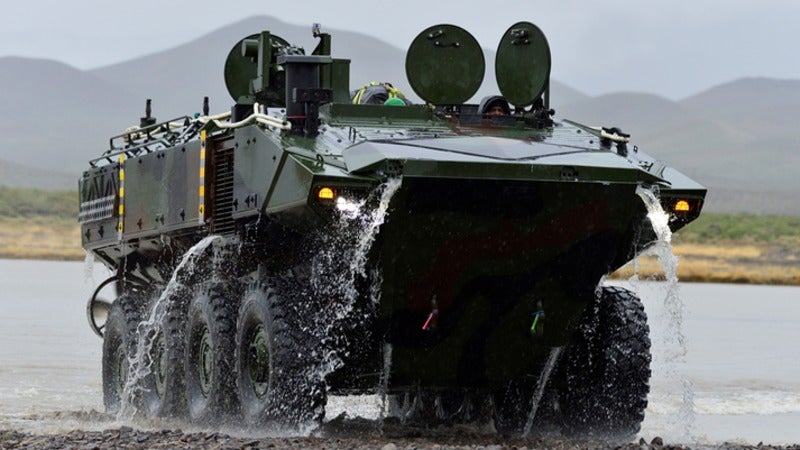
The US Marine Corps (USMC) has awarded a contract modification to BAE Systems team to develop new variants for the Amphibious Combat Vehicle (ACV) Family of Vehicles programme.
Under the $67m contract, BAE Systems and its partner Iveco Defence Vehicles will design and develop the command (ACV-C) and the 30mm medium calibre cannon (ACV-30) variants.

Discover B2B Marketing That Performs
Combine business intelligence and editorial excellence to reach engaged professionals across 36 leading media platforms.
BAE Systems amphibious programmes director John Swift said: “The ACV has proven to be a versatile platform capable of numerous configurations to meet current and future mission requirements.
“With this award, BAE Systems will be able to develop a family of vehicles that will deliver the technology and capability the Marines require to accomplish their mission in support of our national security.”
Equipped with seven work stations, the ACV-C has the ability to provide situational awareness and control of the battle space.
The ACV-30 is armed with a 30mm cannon to offer enhanced firepower protection to the Marines. The vehicle can also accommodate troop capacity and payload.

US Tariffs are shifting - will you react or anticipate?
Don’t let policy changes catch you off guard. Stay proactive with real-time data and expert analysis.
By GlobalDataThe ACV programme is in the low-rate initial production (LRIP) phase. BAE Systems won the LRIP contract in June 2018 for the personnel variant (ACV-P).
After selecting BAE Systems, the Marine Corps subjected the ACV to requirements testing. The vehicle performed as per expectations and as a result, the service ditched an envisioned incremental ACV 1.1 and ACV 1.2 development approach.
The team will undertake the development of the ACV variants in Stafford, Virginia; San Jose, California; Sterling Heights, Michigan; Aiken, South Carolina; and York, Pennsylvania.
The ACV 1.1 solution is designed to meet the mission objective of deploying Marines from ship to shore.
Earlier this week, BAE Systems has received a contract from the US Navy to modernise and maintain command, control, communications, computers, cyber, intelligence, surveillance and reconnaissance (C5ISR) systems.
The five-year contract involves modernisation of C5ISR systems embedded within vehicles, watercraft, and specialised communications platforms.



